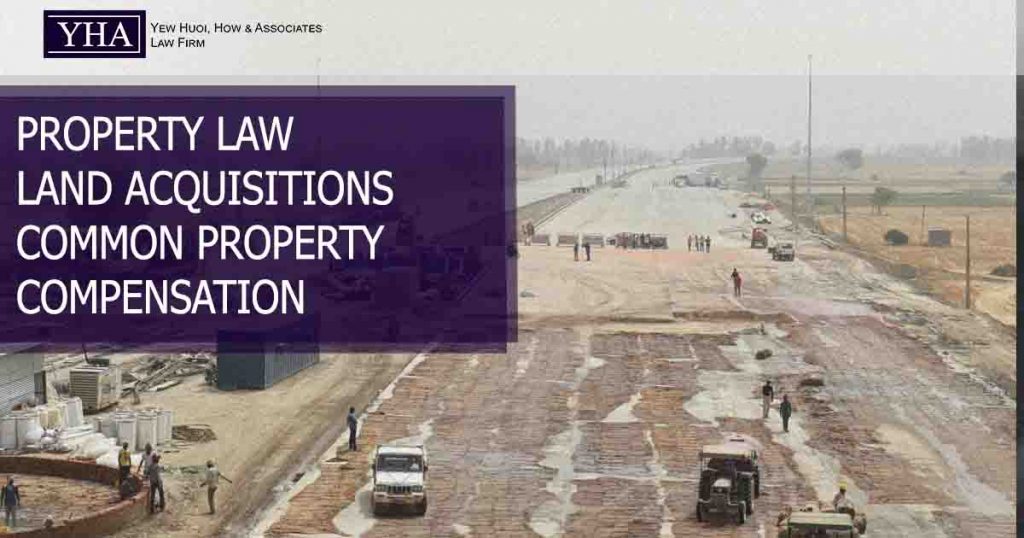In brief
Compulsory acquisition of land is the process by which the government obtains land from private landowners for any public use or for a purpose that benefits Malaysia’s economic development. It is a severe form of government involvement because it results in the eviction and dispossessed of landowners. Landowners’ constitutional rights are affected by compulsory acquisition. Thus, it is critical for landowners to understand their rights in order for their land rights to be protected and adequately compensated.
Q. The district land authorities were forced to take the common property of your condominium. Purchasers, on the other hand, failed to compensate you when they made the transaction. When asked for compensation, buyers rejected because they had already established possession of the land without compensating the owners. What can the landowners do?
A. First and foremost, as a property owner, you have the right to petition the court for substantial money to be paid for the property, as well as a proper reimbursement for the purchase of the property.
What is a common property?
- Any other land in the property that does not belong to an individual strata unit owner is referred to as common property. Common property, on the other hand, is shared by all property owners. The gymnasium, swimming pool, and elevators are only a few examples.
What are the circumstances that allow the government to take your land?
- Only under limited conditions can the government legitimately seize your property. The Land Acquisition Act of 1960 (LAA) authorize the government to seize a person’s property for public use if it benefits everyone. According to Section 3 of the Land Acquisition Act the state authority may acquire any land that is required for any public purpose that is beneficial to Malaysia’s economic development, including mining, or for residential, agricultural, commercial, industrial, or recreational purposes, or any combination of these.
Example: In other words, if your land is needed for development in your township, it can be taken. If the future MRT project is expected to run through your neighborhood, the train firm or perhaps the state government may send you a notice or make a visit to your front door.
Can you stop the government from taking your land?
- In order to prevent the authorities from taking your land, there are two elements you must first satisfy which are that the land isn’t being used for public purpose and it is not done in good faith.
If the government takes your land, do they have to pay you for it?
- So, if all else fails and you can’t show anything against the government’s reason for seizing your property, you’ll have no option but to surrender control. But at the very least, you’ll get compensated. Furthermore, under Article 13 of the Federal Constitution, the government is required to provide you with adequate or sufficient compensation in exchange for the land that they require. However, a Land Administrator will assess the price of your land, and if you are dissatisfied with the compensation amount, you must fill out Form N within 6 weeks, and the court will address the concerns.

